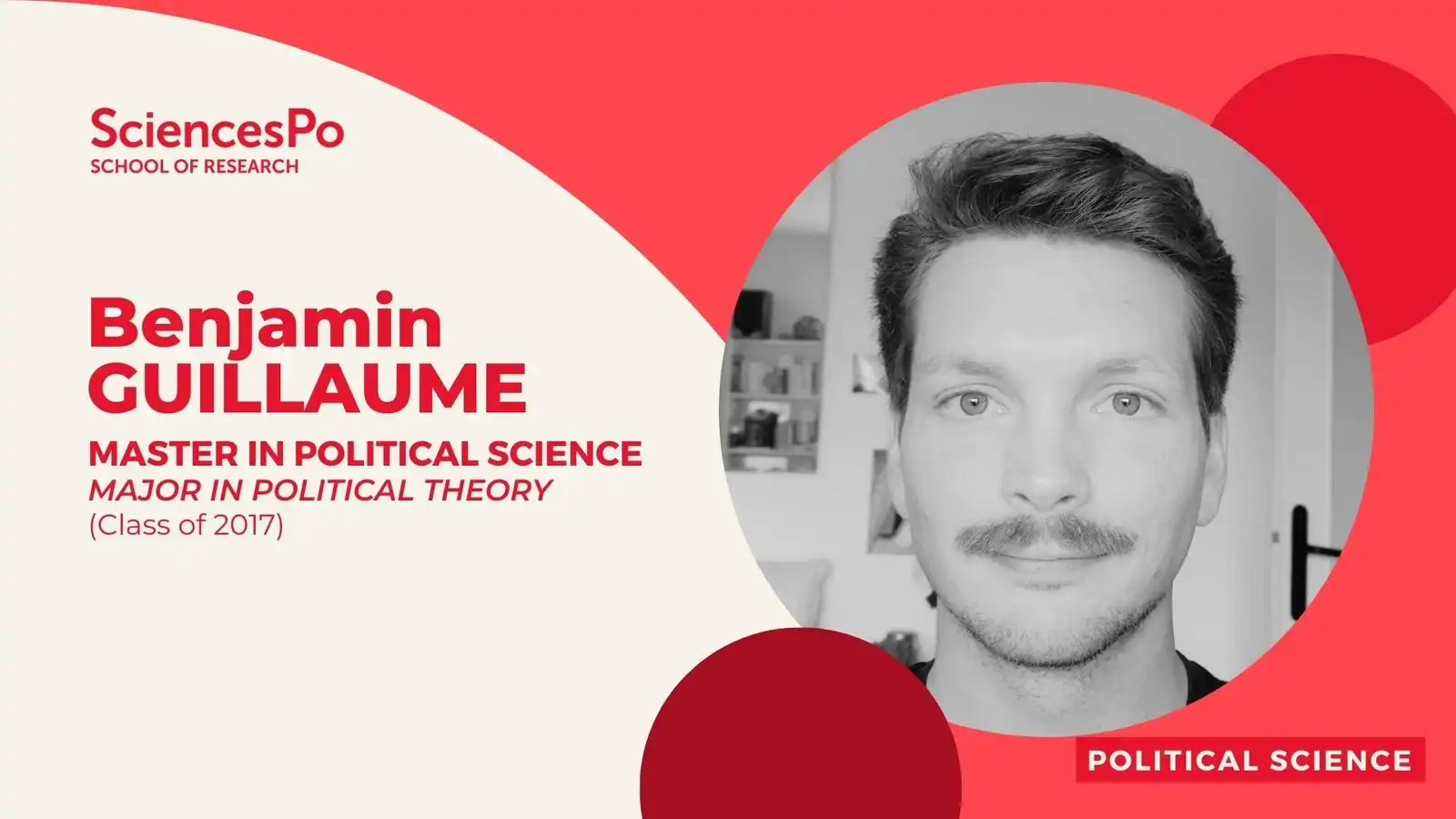Home>Benjamin Guillaume, Class of 2017
28.05.2024
Benjamin Guillaume, Class of 2017
CAN YOU TELL US ABOUT YOUR ACADEMIC BACKGROUND? HOW DID YOUR INTEREST IN POLITICAL SCIENCE COME ABOUT?
I've always been interested in politics, and even as a child I wanted to understand what the personalities I saw on television were talking about, what they were working on and what their interests were.
Later, when I developed a passion for the humanities and social sciences, I began studying economics, sociology and anthropology at university after a brief spell at the CPGE.
The prestige of Sciences Po had attracted me since my high school days in the countryside and getting into the school was a challenge given my social origins, but it motivated me, I wanted to be part of it and I finally took the competitive entrance exam for the Masters.
WHAT HAVE YOUR YEARS AT THE RESEARCH SCHOOL MEANT TO YOU? WHAT MEMORIES DO YOU HAVE OF YOUR SCHOOL, YOUR CLASS AND YOUR TEACHERS?
My Master's studies at the School of Research enabled me to significantly deepen the analytical skills I had just acquired at university. I had the pleasure of benefiting from a multidisciplinary and international training programme that demanded a great deal of rigour and autonomy, in a class of 2017 with an impressive academic level and in which many nationalities were represented.
I learnt a lot about each of the disciplines taught by the professors, as well as the high standards expected of people who want to make an impact through their work (teaching, consulting, analysis, journalism, creation).
WHICH TEACHER OR COURSE OF STUDY HAS HAD THE GREATEST IMPACT ON YOU?
Difficult question. I had some memorable philosophy lessons with Jean-Fabien Spitz and Jean-Claude Monod for example.
I also travelled with Tobie Nathan, who taught ethnopsychiatry and was not stingy with stories from here and elsewhere.
WHAT IS YOUR CURRENT POSITION?
I work as an analyst and advisor in an organisation that brings together the directors of French engineering schools.
WHAT WERE THE MAIN STAGES IN THE DEVELOPMENT OF YOUR CAREER PLAN?
It happened quite spontaneously. I really enjoyed my years of study. That's why I often went on to work for higher education establishments in a variety of fields.
I also wanted to get involved with intermediary bodies, which led me to work for the Association of French Mayors, for example.
HOW HAS YOUR TRAINING CONTRIBUTED TO YOUR CURRENT POSITION?
Since my time at Sciences Po, I've retained a certain taste for analytical reading. More generally, the curiosity about public affairs that I developed during my studies helps me to situate the behaviour of the players I work with and to understand the ins and outs of the public policies that I have to monitor, comment on and evaluate.
WOULD YOU HAVE ANY ADVICE FOR A STUDENT WHO WANTS TO MOVE INTO THE SECTOR IN WHICH YOU WORK TODAY?
This is a sector that has been in the throes of transformation since the late 2000s. In my opinion, there is a lot to be done to make this transformation more relevant and fair.
I also believe that it is possible to build better continuity and interaction between the academic world and what we call the 'world of work'. I am convinced that this requires graduates of the grandes écoles to become involved in both critical analysis and the development of training policies.

